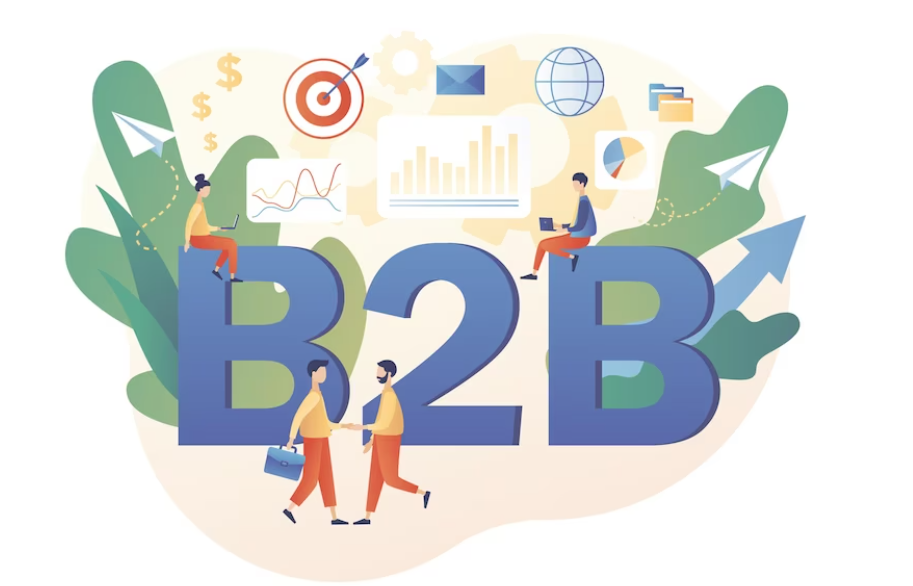
B2B marketing is a dynamic, constantly-evolving field driven by technological advances and consumer behaviour changes and is a critical component of any successful business strategy. Marketers must stay ahead of the curve to succeed in this fast-paced industry and embrace new emerging trends and ideas.
This article will discuss the top B2B marketing trends (2023), strategies for the upcoming year, and practical tips for implementing them effectively. Whether you’re a seasoned marketing pro or a new entrant to the field, these insights will help you navigate the changing landscape of B2B marketing.
15 Cutting-Edge B2B Marketing Trends (2023) to Boost Your Business
Boost your B2B marketing efforts by staying up-to-date with this list of 15 B2B marketing trends (2023) that have the potential to impact your business significantly.
1. Increased focus on personalization
Tailoring business strategies to meet customer preferences is essential for businesses that want to remain competitive in the long term. B2B companies must understand and meet the customers’ needs to build strong relationships and drive growth and profitability.

Pic Courtesy: Freepik
In today’s digital age, businesses have access to unprecedented customer data. They can collect information on customers’ browsing history, purchase behaviour, social media activity, and more.
With this data, businesses can create detailed customer profiles and use them to tailor their marketing messages to individual customers’ needs and preferences. For example, they can use personalised email campaigns that include targeted offers and product recommendations based on customers’ past purchases.
Meeting customer preferences and delivering value helps businesses differentiate themselves from their competitors. Doing this gives companies a competitive advantage and allows them to stand out in the marketplace.
2. Greater use of AI and machine learning
The rise of artificial intelligence in B2B marketing can be attributed to its ability to automate and optimize various aspects of the marketing process, from lead generation and scoring to content creation and delivery.
AI-powered tools can help businesses identify and target high-quality leads by analyzing data from various sources, including social media, website activity, and search engine queries. B2b marketers use AI tools to automate this process to save time and resources.
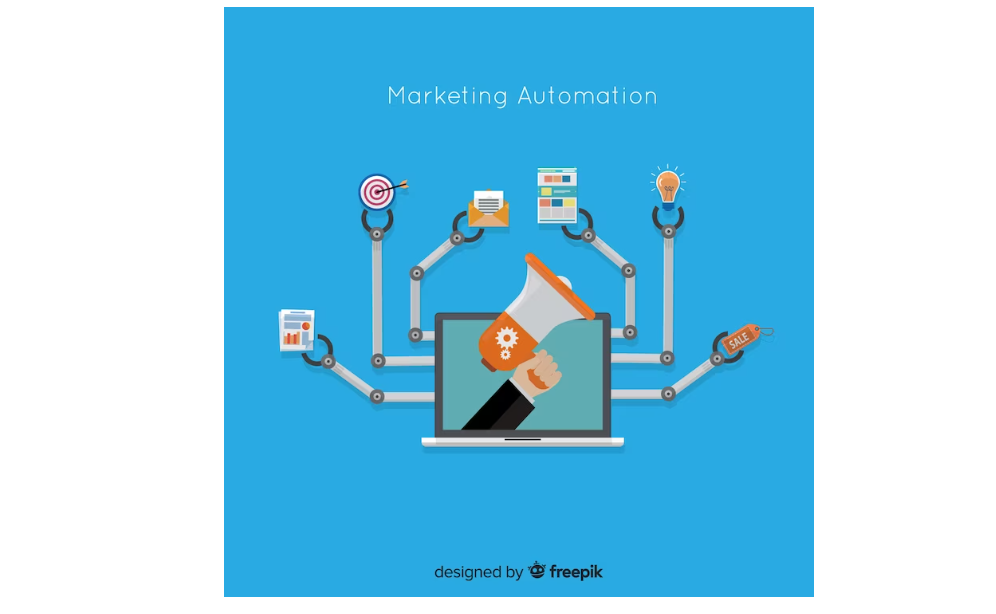
Pic Courtesy: Freepik
Additionally, B2B marketers can use AI to optimize the delivery of marketing content. AI can help businesses tailor their messaging and content to better resonate with their target audience by analyzing customer behavior and preferences data. It can lead to higher engagement rates and, ultimately, increased conversions.
Another area where AI is making an impact in B2B marketing is through predictive analytics. By analyzing data on customer behavior, AI-powered tools can help businesses predict which leads are most likely to convert and what marketing strategies are most effective in driving conversions. It can help B2B marketers optimize their campaigns in real-time, ensuring they always deliver the most relevant and practical messaging to their audience.
3) Expansion of Account-Based Marketing
Account-based marketing (ABM) is a strategy in which businesses focus on identifying and targeting specific high-value accounts and tailoring their marketing efforts to the unique needs and preferences of those accounts. B2B companies need more key accounts that generate a large percentage of their revenue.
There are several reasons why ABM will continue to grow in popularity in 2023. One of the primary drivers is the increasing importance of customer experience and relationship-building in the modern business landscape. By building more profound and personalized relationships with key accounts, businesses can create loyal and engaged customers who are more likely to stay around for the long term.

Another factor is the rise of digital marketing and data analytics. With the abundance of data available today, it’s easier than ever to identify and target specific accounts based on their characteristics, behaviors, and preferences. It allows businesses to create highly targeted marketing campaigns that are more likely to resonate with their key accounts and drive results.
Finally, ABM is attractive to businesses because it can be more cost-effective than traditional marketing approaches. By focusing on fewer high-value accounts, companies can save resources on marketing efforts unlikely to generate a significant return on investment.
4) Emphasis on Data Privacy and Security
Data privacy concerns have become increasingly important in recent years, with consumers and governments growing more aware of the risks and challenges associated with collecting and using personal data. As a result, businesses must prioritise data security and transparency in their marketing practices to build trust with their customers and avoid potential legal and reputational consequences.
One key area where businesses must focus is securing their data storage and management practices. It involves implementing robust security protocols to protect against data breaches and unauthorized access and ensuring that all personal data is collected and stored in compliance with relevant laws and regulations.

Businesses should also consider investing in data encryption, firewalls, and other security tools to safeguard their data against potential threats.
Another critical consideration is transparency. Businesses should be open and transparent about the data they collect, use, and share with others. Doing this can help build customer trust and ensure compliance with privacy regulations like the General Data Protection Regulation (GDPR) and the California Consumer Privacy Act (CCPA).
5) B2B Companies Spending More On Social Media
B2B marketers increasingly turn to social media platforms to engage with customers and build brand awareness.
Social media has the ability to reach a vast and diverse audience. Platforms like LinkedIn and Twitter have millions of active users, many of whom are decision-makers and influencers in their respective industries. By creating a solid social media presence, B2B marketers can connect with these individuals and build relationships that lead to new business opportunities.
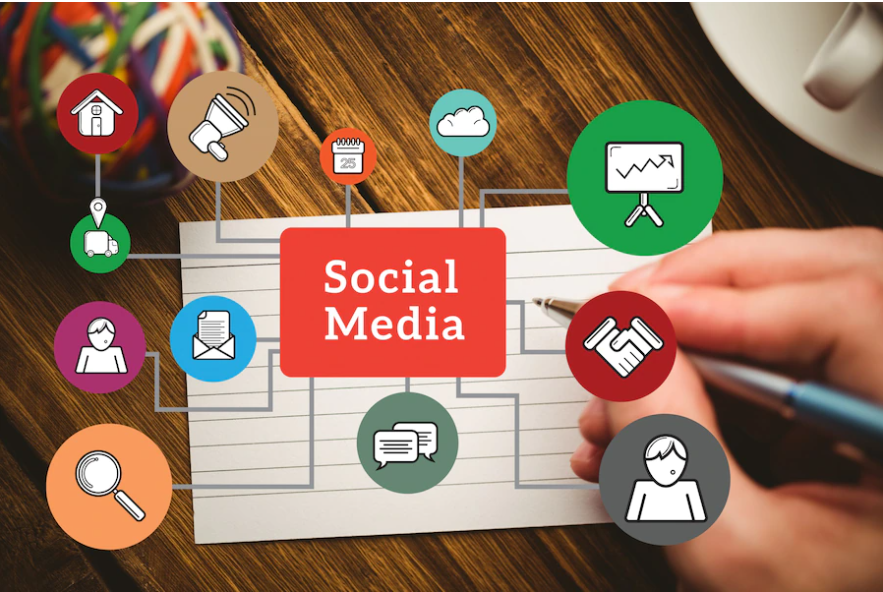
Secondly, B2B marketers provide a more personalised and engaging customer experience with the help of social media. They leverage the power of social media analytics and insights, to tailor their messages and content to meet their target audience’s specific needs and interests.
It is also a cost-effective way for B2B marketers to build brand awareness and drive website traffic. Businesses can create engaging and shareable content with the right strategies to attract new followers and potential customers.
You can read our article, 27 B2B Social Media Content Ideas To Drive Success All Year Long, to learn the different ways in which businesses can create content to build a relationship with its customers.
6) A Robust Marketing Strategy During Recession
In times of economic uncertainty, businesses often reduce their spending on non-essential items, including marketing. However, B2B companies must continue investing in it even during a recession to maintain brand visibility, generate leads, and position themselves for growth when the economy rebounds.
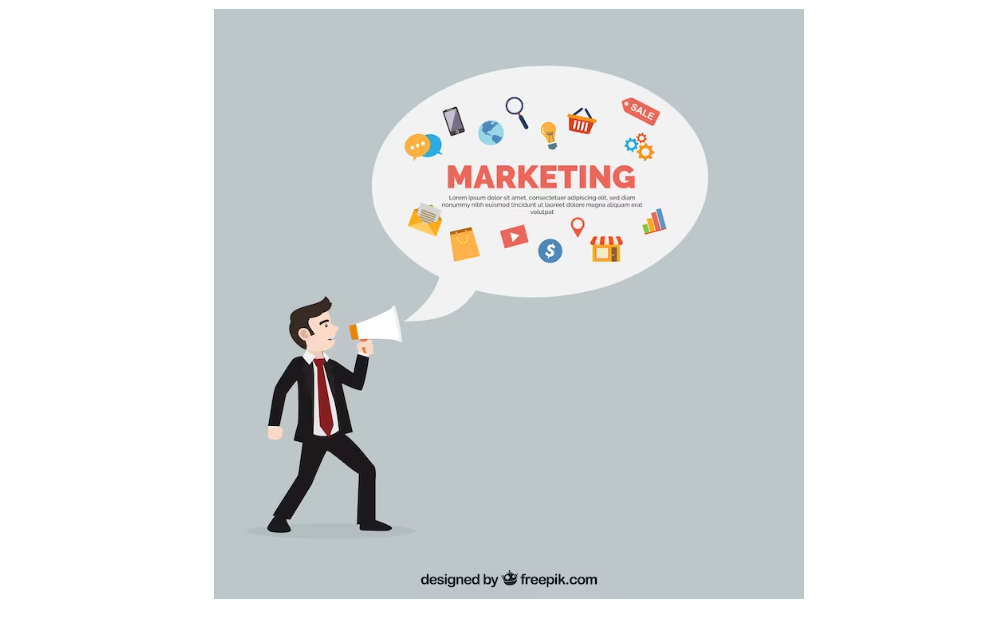
Here are some strategies B2B companies can use to strengthen their marketing during a recession:
- Focus on customer retention: Acquiring new customers can be more difficult during a recession, so retaining your existing customer base is essential. Offer incentives or discounts to encourage repeat business, and keep in touch with your customers through regular communication to let them know you value their business.
- Emphasize value and ROI: During a recession, businesses are more likely to scrutinize their spending and look for ways to save money. Emphasize the importance of your products or services and highlight the ROI that customers can expect to see. Consider offering bundled packages or discounts for bulk purchases to encourage customers to spend more.
- Leverage digital marketing: Digital marketing can be a cost-effective way to reach your target audience during a recession. Focus on search engine optimisation (SEO) to improve your website’s visibility in search results. Use social media and email marketing to stay in touch with customers and generate leads. Use targeted advertising on social media or search engines to reach potential customers.
- Invest in thought leadership: During recession, businesses may be more cautious about spending money on new products or services. Thought leadership can help position your company as an industry leader and build trust with potential customers. By establishing themselves as leaders in their industry, companies can attract top talent, build partnerships with other industry leaders, and stay up-to-date on the latest trends and technologies.
7. Increased Use of Interactive Content
Interactive content like quizzes, polls, and assessments has become increasingly popular among marketers as it provides an engaging and personalized customer experience.
One of the key advantages of interactive content is that it encourages customers to participate in the content rather than passively consuming it. For example, a quiz that asks customers to answer questions about their interests or preferences can be a great way to engage them and provide them with a personalized experience.

Another advantage is that it can gather customer data and insights. For example, an assessment that asks customers about their preferences or pain points can help marketers better understand their target audience and create more targeted campaigns.
Regarding lead generation, interactive content can be a powerful tool for capturing customer information. For example, a quiz or assessment can ask customers to provide their contact information in exchange for personalised results or recommendations. Similarly, a poll can invite customers to participate with their email addresses or other contact details.
8. Greater Use of Virtual and Augmented Reality Technologies
Virtual and augmented reality (VR/AR) technologies offer customers an immersive and interactive experience, which can help businesses showcase their products and services more engagingly. VR/AR help B2B companies to create experiences that simulate real-world scenarios, provide hands-on training, or allow customers to explore complex products or services in detail.
It is beneficial for businesses that operate in industries such as manufacturing, where physical products are often large and difficult to transport. Enterprises can remotely use or explore VR/AR to create digital replicas of products or facilities.

VR/AR can also allow B2B companies to demonstrate complex products or services in a way that is easy to understand. For example, a company that sells software could use AR to visualise how it works, making it easier for customers to understand its functionality.
VR/AR technologies offer B2B companies an exciting opportunity to create immersive and engaging customer experiences. With the help of these technologies, businesses can differentiate themselves from competitors and provide customers with a unique and memorable experience that can help build brand loyalty and drive sales.
9. Adoption of Voice Search Optimization
Voice search optimization is optimizing a website’s content for voice search queries using voice assistants such as Siri, Alexa, or Google Assistant. As we enter 2023, voice search optimization is becoming an increasingly important marketing trend in B2B industries.
The adoption of voice search optimization in B2B marketing is driven by the growing popularity of voice assistants and the increasing number of B2B buyers using them to search for products and services. According to a study by Forrester, 65% of B2B decision-makers use voice-activated assistants at least once a week, which is only expected to grow in the coming years.

One of the critical benefits of voice search optimization for B2B marketers is that it makes it easier for buyers to find relevant products and services. With voice search, buyers can quickly and easily ask for what they need and get a response in real time.
Another benefit of voice search optimization is that it can improve the overall user experience of a website. By optimizing content for voice search, B2B marketers can make their websites more accessible and user-friendly, which can help improve engagement and reduce bounce rates.
To successfully adopt voice search optimization in B2B marketing, marketers must focus on creating conversational and natural-sounding content. Doing this means using long-tail keywords and phrases that match how people speak and creating content that answers the questions buyers will most likely ask.
10. B2B Companies Allocating Separate Budgets for Podcasts
Podcasting has become an increasingly popular medium for businesses. It will continue to be so in 2023 to reach their B2B audiences and establish themselves as thought leaders in their respective industries.

- Convenience and accessibility: Podcasts are convenient and accessible for B2B audiences because they can be listened to at any time, anywhere, and on any device.
- Cost-effective: With just a few pieces of equipment, such as a microphone and recording software, businesses can create high-quality audio content that they can distribute on multiple platforms.
- Establishing expertise: By providing valuable information to their B2B audiences through podcasts, businesses can build trust and credibility, leading to new business opportunities.
- Building relationships: By engaging in conversations with industry experts, customers, and other stakeholders, businesses can foster a sense of community and establish themselves as trusted partners.
- Promoting thought leadership: Podcasting can effectively promote thought leadership by discussing emerging trends, sharing case studies, and providing unique perspectives on industry-related topics.
11. Use of Blockchain Technology to Improve Transparency in B2B Transactions
As a 2023 B2B marketing trend, blockchain-based solutions can help businesses build trust with their partners and customers by ensuring that all transactions are verifiable and tamper-proof.
One of the key benefits of blockchain technology is its ability to create a decentralized ledger of all transactions. It means that all parties involved in a transaction can access the same information, creating high transparency.

Pic Courtesy: Freepik
Another benefit is its security. The decentralized nature of blockchain help reduce the risk of fraud and errors in B2B transactions, further enhancing trust and confidence between business partners.
Blockchain-based solutions can also streamline B2B transactions, reducing the time and cost of processing payments and managing contracts. For example, smart contracts can automate the execution of agreements, eliminating the need for intermediaries and reducing the potential for errors.
12. Growing Importance of Employee Advocacy Programs
Employee Advocacy programs empower employees to promote their company’s products and services on social media platforms, such as LinkedIn, Twitter, and Facebook. They can have a significant impact on brand visibility and credibility.

Here are some of the reasons why employee advocacy programs are becoming increasingly crucial for B2B marketing in 2023:
- Builds Trust and Credibility: Employee advocacy programs help build trust and credibility with customers, as they see real people within the company promoting the products or services. Doing this can be particularly effective in B2B, where trust and credibility are crucial factors in decision-making.
- Amplifies Reach and Engagement: By leveraging the networks of their employees, companies can amplify their reach and engagement on social media. It can increase brand awareness and generate more leads, ultimately driving more revenue.
- Cost-Effective: Employee advocacy programs are relatively low cost compared to other marketing tactics, such as advertising and PR. Companies can leverage the networks of their employees without spending a lot of money on external resources.
- Authenticity: Employee advocacy programs help promote authenticity and humanise a company’s brand. By giving employees a voice, companies can showcase their culture, values, and expertise in a genuine and relatable way.
- Employee Engagement: Employee advocacy programs can also positively impact employee engagement and morale. Allowing employees to promote their company makes them feel more invested in the business’s success, leading to higher retention rates and increased productivity.
13. Amplified Focus on Video Marketing
With the rise of digital channels and the proliferation of mobile devices, video is a highly effective medium for capturing attention and compellingly conveying complex ideas.
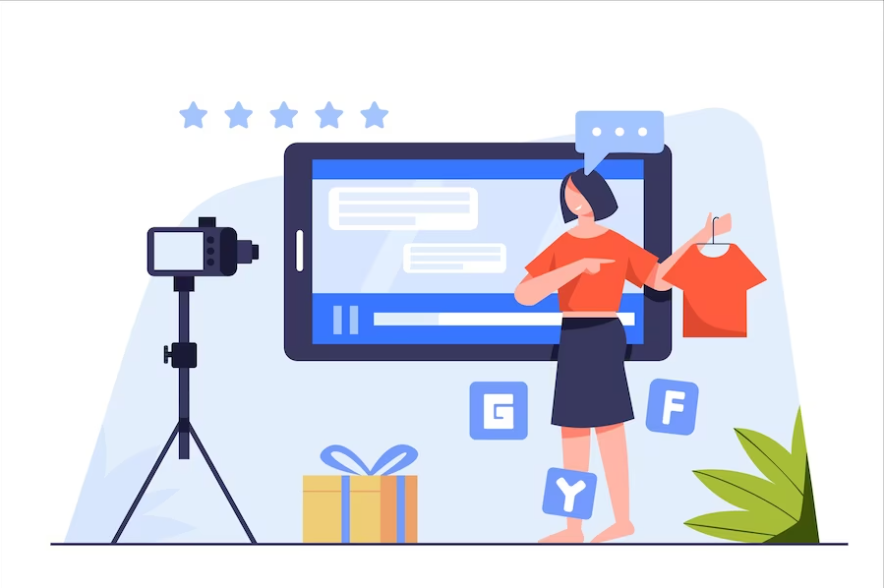
Here are some ways that B2B companies can focus on video marketing:
- Live streaming: Whether it’s a product demonstration, a webinar, or a virtual event, live streaming allows you to connect with your audience in a more personal way. With platforms like YouTube Live, Facebook Live, and LinkedIn Live, it’s easier than ever to reach a broad audience with your live content.
- Short-form video content: Short-form videos, such as Instagram Reels or TikTok, are a great way to grab the attention of B2B buyers. These videos are typically less than a minute long and are designed to be highly engaging and shareable. You can increase brand awareness and generate interest in your offer by creating short-form videos highlighting your products, services, or company culture.
- Video testimonials: Video testimonials are a powerful way to build credibility and trust with B2B buyers. You can demonstrate your expertise and the value you provide by showcasing satisfied customers who have had positive experiences with your products or services.
- Animated explainer videos: Animated explainer videos are a popular way to simplify complex ideas and processes. By using animation, you can illustrate your product or service in a way that’s visually appealing and easy to understand. You can use these videos on your website, social media channels, or email campaigns to educate B2B buyers about your offerings.
- Webinars: Webinars are a great way to educate B2B buyers and establish yourself as a thought leader in your industry. You can build trust and credibility with your audience by providing valuable information and insights. You can also use webinars to showcase your products or services and generate leads.
14. Increased Focus on Sustainability and Social Responsibility
B2B companies place greater emphasis on their environmental and social impact as a critical component of their marketing strategies. It is driven by several factors, including changing consumer attitudes, increasing regulations, and a growing awareness of the importance of sustainability and social responsibility in business.
B2B companies need to focus on sustainability and environmental impact. It includes shifting towards more sustainable business practices like reducing carbon emissions and waste, using renewable energy sources, and implementing green technologies. They are also increasingly looking to partner with suppliers and vendors that share their commitment to sustainability and environmental responsibility to create a more sustainable supply chain.

B2B companies are also looking to impact society positively and actively seeking opportunities to support social causes and initiatives like supporting local charities and non-profits, sponsoring social impact projects, and investing in sustainable development initiatives.
In today’s highly competitive business environment, companies seen as socially responsible and environmentally conscious are often viewed more favourably by customers, partners, and investors. When companies emphasize their commitment to sustainability and social responsibility, they can differentiate themselves from their competitors and build a strong reputation as responsible and ethical businesses.
15. Increased Use of Immersive Events like Virtual Trade Shows and Conferences
Increased use of immersive events such as virtual trade shows and conferences to connect with B2B buyers is a strong trend in B2B marketing. The COVID-19 pandemic has accelerated the adoption of virtual events, and many B2B companies have found that they can successfully reach and engage with their target audience through online platforms.

Pic Courtesy: Freepik
Virtual events provide several benefits over traditional in-person events. They are more cost-effective, require less time and travel for attendees, and can reach a wider audience. Additionally, these events allow for more detailed analytics, allowing companies to understand attendee behaviour better and measure the success of their marketing efforts.
However, to effectively connect with B2B buyers through virtual events, companies must focus on creating engaging and interactive experiences that provide value to attendees. It may include incorporating elements like virtual networking opportunities, personalised content, and immersive technology like virtual reality.
Key Takeaway
The B2B marketing landscape is rapidly evolving, and businesses must stay on top of the latest trends to remain competitive. In 2023, B2B marketers expect an increased focus on personalisation, AI-powered technologies, and a shift towards more ethical and sustainable practices.
Businesses must adapt to these changes and invest in the necessary tools and strategies to stay ahead of the curve. You can stay up-to-date with the latest B2B marketing trends by connecting with your target audience, building stronger relationships with your customers, and driving sustainable growth for years.
Consider partnering with Eventible, a reputable specialist in B2B marketing, to help execute your vision and enhance the return on investment of your events, which is an excellent B2B marketing channel.




Comments are closed.